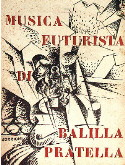Beginning in 2004, Google began scanning the books in several libraries including Stanford and the University of Michigan. Later,
many other libraries joined the project. Currently, Google says that they have
7 million books searchable through the project. Many of these books can be viewed for free, and many others can be downloaded as well.
For more information on Google Books and how the AUR Library
and its catalog make these materials available to users,
see the AUR Library Information Wiki.
The problem with all this has been that the publishers believe Google has been
violating their copyright and has taken Google to court. In a nutshell, anything published before 1923 is in the
public domain and can be copied;
orphan works are materials that were copyrighted and the copyright holder cannot be contacted, or perhaps it is unclear if a copyright was renewed; and today, copyright is based on the
death date of the author and not on the
date of publication. In other words, copyright is highly complicated.
Recently, the Google Books case was settled with an agreement that could have wide consequences. Essentially, the publishers have agreed to let Google display 20% of every book that is in copyright, and Google will begin to let people buy access rights to individual books they want, and libraries will be able to pay money to get full access to the books. (Printing and downloading are different issues)
So, it could all be a new world for making vast amounts of information available to the public , while making Google a lot of money and it will become the largest online book retailer in the world. (See Paul
Courant's article (librarian at the University of Michigan):
The Google Settlement - From the Universal Library to the Universal Bookstore for a good discussion). Lots of librarians are against the settlement; others are for it. For the other side, you can read
Harvard's librarian Robert Darnton's reply in Harvard's newspaper, The Harvard Crimson.
Anyway, the settlement still has to be approved by a court and then work can begin. Finally, what does this have to do with the
AUR Library?
Unfortunately, very little because this settlement will work only from U.S. computers since the agreement deals with U.S. law, but as in so many things, there will be consequences for the rest of the world. The discussion is far from over, so let's wait and see.
See also: the
summary of the agreement.
 The AUR Library in Evans Hall has created a Facebook page where you can keep up with the latest news, share information and so on. For example, this blog automatically feeds into the Facebook page.
The AUR Library in Evans Hall has created a Facebook page where you can keep up with the latest news, share information and so on. For example, this blog automatically feeds into the Facebook page.





















